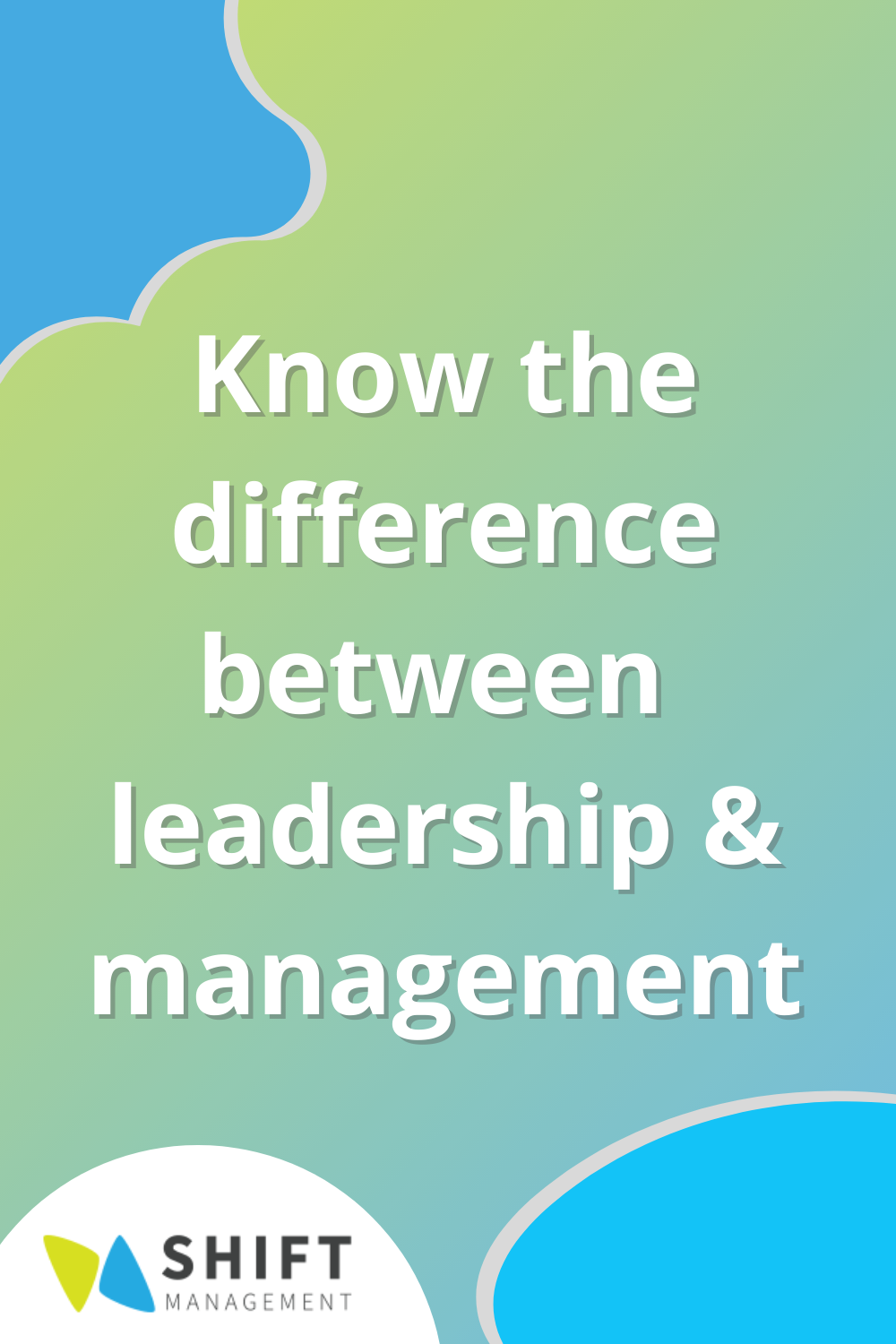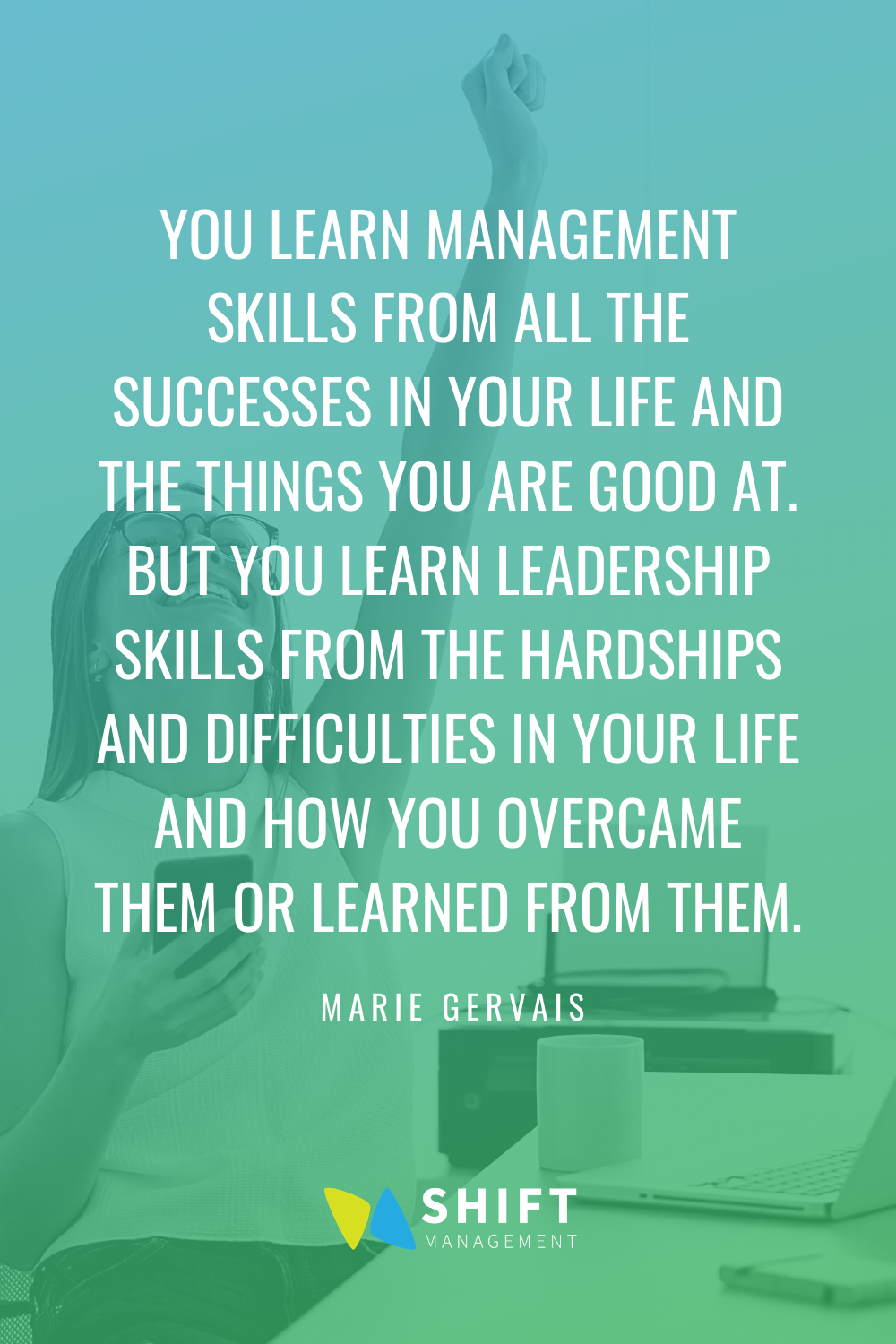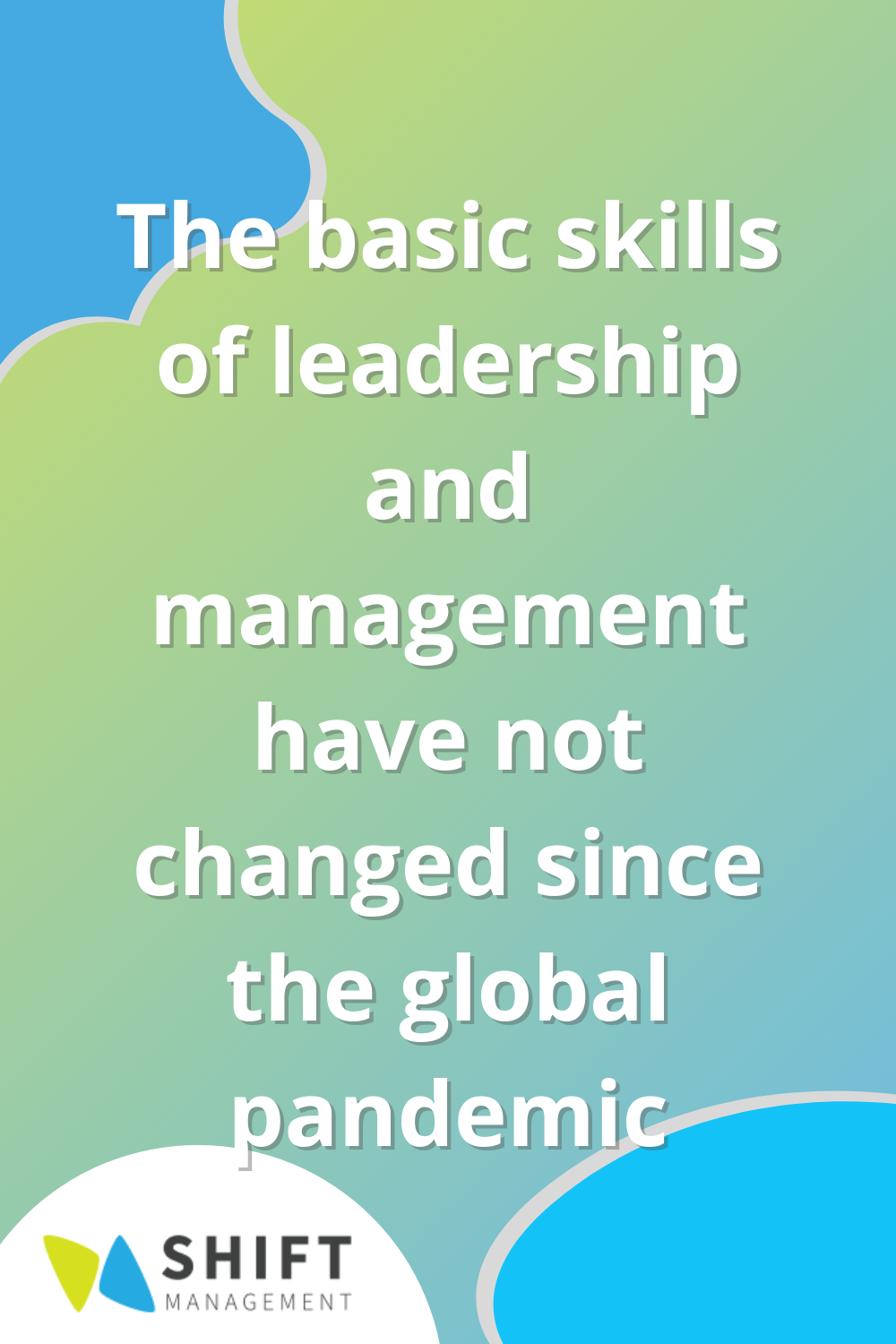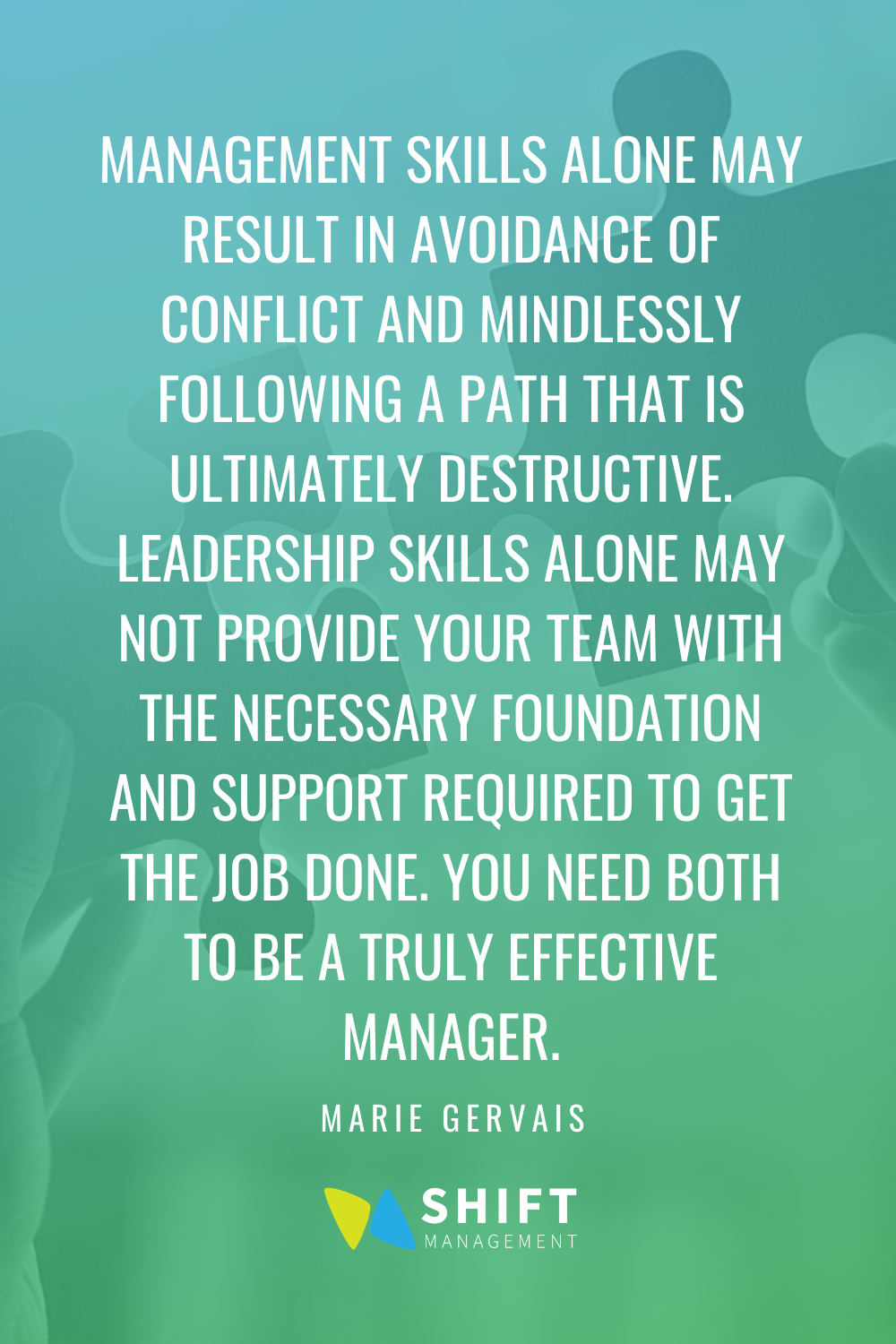What has changed for leadership and management since COVID-19? You may be wondering what has changed for managers since the experience of a global pandemic and widespread economic upheaval.
From my perspective, the basics of management continue to be the foundation for strong and resilient organizations. However, COVID-19 has added new dimensions to the mix that cannot be ignored. But let us start with the basics.

The difference between leadership and management
Managers have formal authority over others and are responsible for the results of their teams. Leaders can be anyone with influence, either positive or negative. Share on X
You may be a manager but if your team does not want to follow you, or questions your direction, there may be an issue with your leadership. Or there may be someone on your team who has more influence with the team than you, even though you have the “formal” authority.
Management skills are about keeping things running, promoting unity and meeting production and business goals. They are about minimizing or avoiding disruption.
Leadership skills are about paying attention to what needs to be stopped, changed, or rethought. They involve questioning and challenging as well as inspiring people to stay committed to a difficult path or mission.
You learn management skills from all the successes in your life and the things you are good at. But you learn leadership skills from the hardships and difficulties in your life and how you overcame them or learned from them. Share on X
To be a truly effective manager you will need to be clear about the skills you have on both sides of the equation. Management skills alone may result in avoidance of conflict and mindlessly following a path that is ultimately destructive. Leadership skills alone may not provide your team with the necessary foundation and support required to get the job done.
To find out what your management skills are, ask yourself what you know about keeping people together and focused, task oriented and successful. Think about your experiences in teams and games where everyone had to work together.
To find out your leadership skills focus on the difficulties you have experienced and hardships you have had. Consider your failures and what you learned from them. What qualities did you call on to deal with these difficulties?

What if you have influencers on your team that have stronger leadership pull than you do?
People will follow others for a variety of reasons. Sometimes they are attracted to the charisma, confidence, or strength of another person. They may be looking for someone with great ideas, or more heart, a person who has proven themselves to be good mentors, or who can help them advance their own career goals. Maybe the influencer dealt with a difficult issue and saved a team or individual from harm or humiliation.
Sometimes people want to be associated with the “popular” or “winning” group and long to be accepted by the people they long to belong with. Following the group’s leader without question is often expected as part of this “membership”. Additionally, people are attracted to the fame and glamour of celebrities who they may follow without thinking simply because they are “famous”.
In a work situation, you might have a strong positive leader on your team or conversely a strong negative leader. Generally, managers fear the influence of leader-influencers and try to undermine or discredit them. Some just ignore the leaders on their team, because after all, they do not have the formal authority the managers do. But that only makes others want to follow influencers more.
To manage when leadership on your team is stronger than yours, there is one phrase I have found useful: “Keep your friends close. Keep your enemies closer.” A strong positive influence needs to be won over to build out your allies. Talk to the person, acknowledge, and validate their ideas, get their insights about the team and the job at hand. Ask the person to be your ally and show that this is going to be an advantage to both of you. The power of building an ally with a positive influencer is that the team will follow them, and they are then all following you.
If the person has a strong negative influence you will need to draw the influencer closer to you, but strategically and paying attention to how each part of the conversation is being received. Share on X
Speak privately with the negative influence person. Acknowledge their influence and abilities. Determine what the goal of the negative behaviour is. If the goal is to destroy you, then you need to take decisive action. If the goal is to gain something, you may be able to work with it if you are strategic and careful. As a manager, think of ways to either reverse the effects, transform the situation, or protect yourself and the team from destructive behaviours from negative influencers. The toxic effects of this type of influencer have been well documented in the work of Robert Sutton.
What has changed in leadership and management since COVID-19?
The basic skills of leadership and management have not changed since the global pandemic.
Managers need to: plan and budget, organize and solve, control, enforce rules and provide structure. Leaders need to: establish direction, align people, inspire, challenge, build commitment and be willing to step out on a limb for what needs to be addressed.
A good manager is intentional about using both the manager and leadership skills required for the context.
But there are some more urgent and critical skills that have been added to the manager/leadership mix since Covid-19.
First, is the responsibility to help people feel safe. If employees do not feel physically, emotionally, culturally, and spiritually safe, they are likely to be triggered in ways they never were in the past. This as we have seen, will grind everything to a frozen halt.
Second, is that we have cybersecurity issues now that were previously not a problem because few employees were working from home and there were fewer potential points of internet failure. This requires new thinking around internet use and securities with multiple devices.
Third, we need to consider the effects of job insecurity and economic instability in a more personal and more global scale. There are millions of people who have lost their jobs around the world. Each of those millions affects at least five or six more people and is potentially affecting billions. This global job loss generates continuous fear in the minds of those who still have work and survival, health, and wellbeing issues for those with or without employment. The wellbeing or all has become critical to success.
What employees need now from their employers and managers, is clear communication and honestly about where we are at each day, week, and month with an understanding that things can change in an instant. Employees need to be communicating back to managers about how they do production and managers must listen.
To engage with the emotional safety aspect of the pandemic requires empathy, the realization that we are complete human beings, not just bodies doing work. The whole person is coming to work, and the workplace needs to embrace and respond to whole people. Collectively if one suffers, we all suffer so looking at all departments and jobs as essential means understanding how critically dependent on the wellbeing of their workforce employers are. If we are unable to meet this new management challenge of response to workforce emotional safety, cybersecurity and global economic uncertainty, individuals will become more fragile, and organizations and businesses may not survive.
We are at a critical learning moment.
- Learn quickly,
- listen carefully and
- pivot to act as required,
are the new watchwords for management.
This is where my SWEL model can serve as a guide. When feeling confused, ask yourself: How are we considering safety, wellbeing, encouragement, learning in our workplace? Use these guideposts to make whole decisions for whole people in whole organizations. Which leads me to my final point; the importance of starting with your own emotions to make progress in all these categories.

To be a better manager, acknowledge that you have emotions
Covid-19 has added an urgency to the acknowledgement of emotions in management. Yet we have been so conditioned to believe that we are always logical and reasonable, that we are blind to the sabotaging effect of our own emotions screaming to be acknowledged. Paying attention to our own emotions is critical to managing effectively now more than ever. If we cannot hear, name, and acknowledge our own feelings, we will miss important pieces of information about the context – not to mention miss out on empathy for employees.
There is a great story about a CEO who told his board that he was feeling confused and frustrated about an aspect of his job that was causing him to continuously procrastinate on a specific task. To his surprise, the board of directors all said they were experiencing the same feelings and resulting procrastination to related tasks. They discovered that these feelings were the barometers for on time delivery issues to customers, not only at their facility but at all the company facilities.
Interestingly, the company had tried to address the on-time delivery issue from an analytical perspective without results earlier on. The numbers were necessary to see the outcomes, but without the CEO saying he “felt” a certain way, and that this feeling had become a pattern of avoidance, the company would not have come to the root of the issue or been able to solve it.
Most of the business leaders I work with believe they are “always” logical. In fact, they are continuously being influenced by their own feelings around an issue or from their personal lives, their perceptions of acceptance or rejection, and by their ideas about “how the world works” – which are only imaginary social constructions based on their individual limited experience.
As a manager, the best way to start increasing your self-awareness and to improve the quality of your decisions, is to name your feelings to yourself and ask if the feeling is positive or negative. Both kinds of feelings are feedback and necessary to thinking and acting. If you do not acknowledge the feelings, they will lodge themselves in your body as aches, pains, and inflammation. And they will stop you from making your best decisions, because strong emotions flood your nervous system and reduce blood flow to the reasoning part of your brain.
Just the simple act of learning to name your feelings to yourself can have a dramatic increase on your management abilities.
A useful tool for learning to name and acknowledge emotions is the “feelings wheel”, which you can access anywhere on the internet.
Ready to take your leadership learning a bit further?
Check out our Supervisory Leadership Certificate course for find out how you can rock your management skills!
Conclusion
In summary, management skills are learned through success and have to do with promoting unified action towards the accomplishment of a business-critical task. Leadership skills are learned through struggle and difficulties and have to do with inspiring, challenging and disrupting to get to the root cause of problems. Both are necessary to effective management pre and post pandemic. Part of the leadership question involves knowing the influencers on your team and understanding their positive or negative impact, then dealing with those influencers intentionally.
COVID-19 has added at least three critical areas the requirements of good management: the emotional and physical safety of employees, increased problems with cybersecurity, and global economic volatility from massive job loss. To manage this crisis and beyond, we need to communicate more often and more intentionally, learn quickly, listen carefully and pivot to act as required.
An important piece that we are learning from the pandemic, is that managers are more effective when they can name and acknowledge their own feelings to themselves. This skill builds self-awareness, enables empathy, and improves informed decision-making. We are whole people in whole organizations dealing with the whole global context. Managers who help their organizations survive and thrive are able to learn into this context holistically and respond to disruptions as compassionate participants in a socioeconomic ecosystem that affects us all.

About Marie:
Marie Gervais, PhD., CEO of Shift Management Inc., provides managerial training and workforce interpersonal development to business and industry through online courses and web coaching. She helps individuals and organizations build talent and skills for leadership, communication, and conflict resolution particularly at the supervisory and middle management level. Her work has gained a reputation for excellence in integration and inclusion of the diverse workforce. With her team at Shift Management, Dr Gervais helps clients reach their business goals through team building coaching and industry-specific training development for interpersonal leadership skills. Her impactful digital and multi-media resources have been successfully implemented with many different populations and contexts. The results prove that a learning workplace is a happy and profitable one!
Check out Marie’s podcast Culture and Leadership Connections on Apple Podcasts and on the Shift website to hear stories of leadership and all things cultural. Consider the signature Supervisory Leadership Certificate Course for upskilling your workforce at:
https://shiftworkplace.com/courses/supervisory-leadership/
Contact information:
780 993 1062








